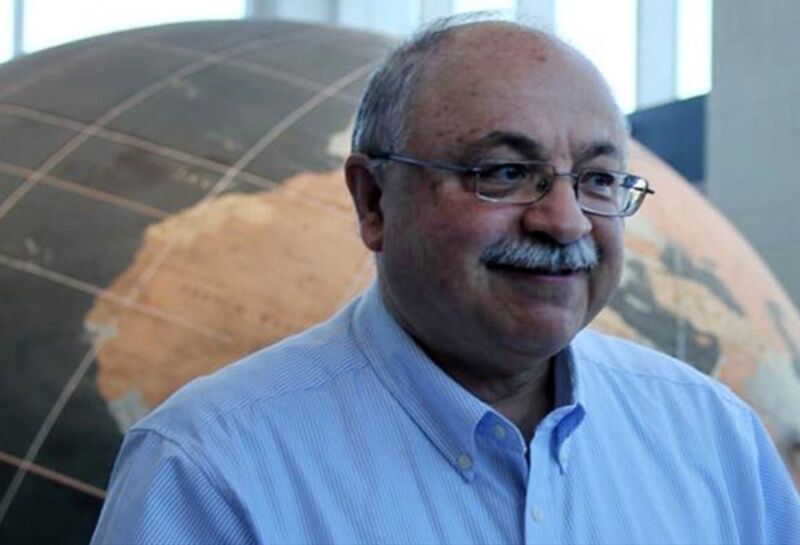
In an interview with the Islamic Republic News Agency (IRNA) on Friday, on Donald Trump's insistence to negotiate with Iran after heightened tensions and increased pressure on Iran, Nader Entesar underlined that Trump's request has two main reasons; one for propaganda to show the world that the US government does not want to fight a war with Iran and is keen on resolving its differences with Iran through a dialogue.
** Trump sees dialogue and pursuing a maximum pressure policy as complementary
“The second reason is that the Trump government has concluded that Iran is in a weak position and now it is the best time for the United States to force Iran to surrender and accept Washington's main demands," the professor highlighted.
The senior Iranian expert did not consider Trump’s insistence for talks with Tehran as a retreat from pursuing the maximum pressure policy, and said that Trump sees talks with Tehran as an important leverage for achieving its maximum policy objectives, namely, he does not see a contradiction between the request for dialogue and the pursuit of a maximum pressure policy, but sees them as complementary to each other.
** Trump's goal is to force Iran to follow the US in Middle East
Entesar answers the question about what goals Tramp will pursue in negotiating with Iran?, "The main purpose of the Trump is to force Iran to comply with US foreign policy in the Middle East, especially in the Persian Gulf, namely Iran's independent foreign policy that challenges America”.
He added, "It does not matter for Trump what system of government is in power in Iran; what he wants is a government that does not prevent the US policy from being implemented in the region.
** Roots of “Team B” strong, deep in Trump government
The professor of political science and international relations at the University of South Alabama, USA, commented on “Team B” reaction to Trump's request for talks with Iran, “There is currently no evidence showing that the role of Team B in determining the US policy towards Iran has declined or that Trump is being separated from them.
Entesar emphasized that root of "Team B" is strong and deep in the body of the Trump government, expressing, "The news that the American newspapers occasionally report on differences between Trump and individuals such as John Bolton, Benjamin Netanyahu and ...etc should not be taken too seriously.
** Iran not trusting current regime in Washington
In explaining why Iran responded negatively to Trump's requests for talks, he also went on to say, "Given the behavior of the United States, especially the Trump government in breach of its previous commitments, Iran has no trust in the current regime of Washington and it does not see any reason Trump would respect implementing its future commitments.
The senior analyst, arguing that the Trump regime's record on the implementation of the US international obligations is disgraceful, underscored that “Iran currently does not have a strong hand in negotiating with the United States and if it accepts frequent requests for negotiating may be a loser in such a meeting, namely gains nothing important, and it has to accept the main demands of the Trump regime.
** Full implementation of JCPOA, sign of America's seriousness to engage in dialogue with Iran
What action should be taken by the US to persuade Tehran to attend the negotiating table?, the Iranian professor said, adding, "What matters to Iran is not the American word, but the function of the Trump government vis-a-vis Tehran. The United States must prove in practice that its policy towards Iran is not in the path of double-standards. It is not enough to send a direct or indirect message by itself.”
In response to the question of to what extent returning to the JCPOA and halting the sanctions, could be seen as a sign of Washington's seriousness to talk with Tehran?, he said full implementation and without halting the JCOPA, which includes suspending sanctions, could be a sign of Washington's seriousness of talks with Tehran, but I find it unlikely on the part of the Trump regime.
The professor of political science and international relations at the University of South Alabama on the visit of Japan's Prime Minister Shinzo Abe to Iran and his quest for mediation between Iran and the United States also said that Japan, as an important ally of the United States, which has good relations with Iran, would certainly bring a message from Trump to Iran, “but I do not have much hope on Tokyo’s role as an active mediator in this regard".
"In general, the Tokyo's political maneuvering is too narrow and Japan cannot force Trump to accept Iran's main requests," Entesar concluded.
9455**2050
Follow us on Twitter @IrnaEnglish
IRNA English solhkhabar | Peace International News Agency Peace International News Agency , Peace News , International Agency News of Peace
solhkhabar | Peace International News Agency Peace International News Agency , Peace News , International Agency News of Peace